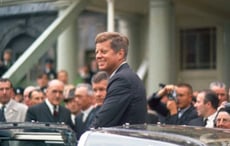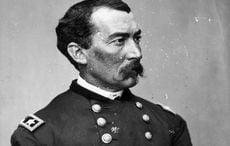Writing to Harriet Tubman, (1822-1913), the great abolitionist Frederick Douglass stated: “The midnight sky and the silent stars have been the witnesses of your devotion to freedom and of your heroism. Excepting John Brown—of sacred memory—I know of no one who has willingly encountered more perils and hardships to serve our enslaved people than you have.
Fittingly, Tubman's heroism is freeing hundred of slaves by guiding them through the underground mostly to Canada has been recognized with her portrait on the $20 dollar bill. She was America’s Joan of Arc, who saw visions of freedom for her people and risked her life and freedom after she herself had escaped from slavery to help other slaves walk free.
But in the move to honor Harriet Tubman the loser is Irish American Andrew Jackson (1767- 1845). He is unlucky. There is nothing worse than projecting today’s moral climate on the culture and customs of hundreds of years ago.
Are we to stop all veneration of Jefferson and Washington now that owning slaves has become the barometer of how we remove historic figures from places of memory? Should they be removed from the currency also?
That Jackson was a slave owner and Indian hunter is indisputable. That he supported his native south on the issue if slavery is also clear. He was wrong but equally so he was a man of his time and place and placing him in a 21st Century context is absurd.
Read more: Andrew Jackson His Life and Times
Let us look briefly at the Jackson record.
His parents were Scots-Irish colonists Andrew and Elizabeth Hutchinson Jackson, Presbyterians who had emigrated from Ireland two years before he was born in 1765. Jackson's father was born in Carrickfergus, County Antrim, in current-day Northern Ireland. Jackson's parents lived in the village of Boneybefore, also in County Antrim. Jackson was born two years after his parents arrived in America. Two brothers had actually been born in Ireland.
He and his two brothers fought in the revolutionary war and almost starved to death after being captured and badly treated by the British.
He had his revenge in 1815 when he stopped a British Army invasion at the Battle of New Orleans where he outfought and outmaneuvered them. The war hero then turned his hand to politics and was elected president in 1828 when he became the first Democratic Party President in history.
As historian Mary Beth Norton has written Jacksonians Democrats took power away from the elites and spread it among the population. In 1828 Jackson believed the people's will had finally prevailed. A popular movement had elected the president. The Democrats became the nation's first well-organized national party .
As David Feller a Jackson scholar had written “He was the first president who started so low in life. He governed as a president opposed to moneyed interests. He destroyed the Bank of the United States, the central bank of his time. This may have been a wildly irresponsible and even illegal campaign, but he attacked moneyed interests who had attached themselves to this government-chartered institution and profited from it.”
Jackson served until 1837 and was a popular president.
Now he is being elided from history and his role in the era focused only on his shortcomings. It hardly seems fair. A patriot, corruption fighter, a popular president, he deserves better recognition than being turfed off the $20 bill.




Comments